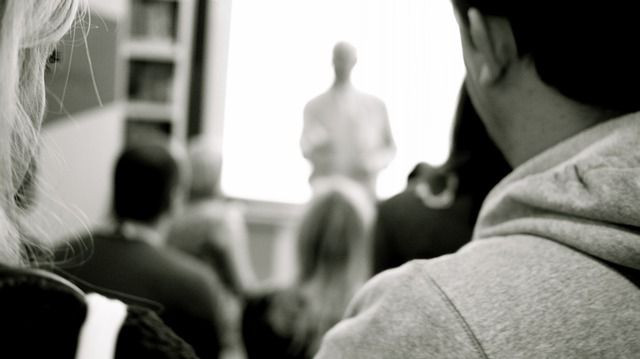Sex Education In School: Kids Around The World Hate Outdated Lesson Plans
The world’s kids don’t think very highly of schools' sexual education curriculum, reveals a new study published Monday in BMJ Open.
Researchers reviewed more than fifty earlier studies that collected children’s evaluations of their school’s sex and relationship education (SRE) programs. Despite the studies being conducted throughout 10 different countries, including the United States, and across a 25 year period (1990-2015), the results were remarkably similar: Children felt their programs were out-of-touch, outdated, and did little to address their actual concerns about sex. Specifically, many agreed that there was no acknowledgment of non-heterosexual relationships, the texts ignored that they might already be sexually active, or even that sex could be pleasurable. These missteps all made the kids more likely to tune out the lesson plans.
“Schools should acknowledge that sex is a special subject with unique challenges, as well as the fact and range of young people’s sexual activity, otherwise young people will continue to disengage from SRE and opportunities for safeguarding and improving their sexual health will be reduced,” wrote the authors.

Boys in particular felt reluctant to admit they needed education, which caused some to disrupt the class, while girls often felt shamed if they spoke out by not only boys but sometimes their own teachers. In either case, the kids often reported that schools were inept at relieving their anxiety, with instructors either delivering moralistic lectures about the evils of sex or dryly explaining biology facts that had little relevance to their own lives.
“So you just were taught about sexual intercourse causing pregnancy, but you were never taught about masturbation; you were never taught about oral sex [or] all the different, other types of sexual practices…” said one interviewed child.
“They didn’t really help you with your sexual feelings, they made you kind of feel bad about having them,” said another.
Girls also lamented the lack of discussion surrounding their own pleasure, and often felt like their only allowed role in a relationship was as a passive gatekeeper uninterested in sex.
“They don’t realize that a lot of girls want to have sex, too. And so I don’t think that they focus on that enough at all,” said one female student.
Despite these shortfallings, there were some positive lessons to take away, the researchers found. Students tended to value sex-ed programs when they were taught by outside experts who were open and enthusiastic — who injected humor into their lessons and admitted that sex can make people vulnerable and embarrassed. There was also some limited evidence that the younger children receive sexual education, the better opinion they have of it, and that peer counselors could make for better educators than teachers already known to students. Surveys elsewhere have shown that as many as 80 percent of students prefer sex-ed not be taught by their teachers.
While calling for more research to be done, the authors believe their findings indicate the need for a drastic overhaul of sexual education programs, one that not only lays out the longstanding complexities of sex but more modern-day realities like sexting.
“Young people’s aspirations for SRE appear to align with a ‘sex-positive’ approach that aims for young people to enjoy their sexuality in a way that is safe, consensual and healthy,” wrote the authors. “However, even if excellent SRE curriculum materials were produced, the success of those materials would depend in very large part upon the educator delivering them.”
Source: Pound P, Langford R, Campbell R. What do young people think about their school-based sex and relationship education? A qualitative synthesis of young people’s views and experiences. BMJ Open . 2016.



























